Mark Anthony Neal's Blog, page 561
November 19, 2016
Slavery’s History in the Age of the Database: Interface Design for Corrupted Files
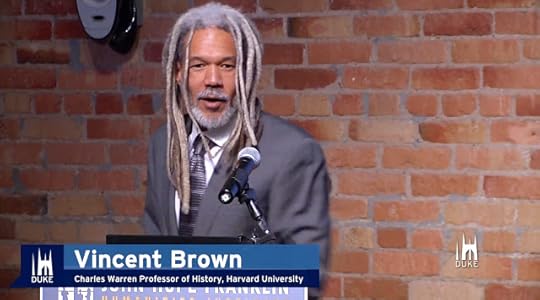 'By responding creatively to the archival challenges presented by the social history of slavery, Harvard Professor Vincent Brown hopes to inspire new conversations about the inheritance of loss and the legacy of struggle. This presentation considers three graphic histories: an animated visualization of Voyages: The Transatlantic Slave Trade Database, a cartographic narrative of the Jamaican slave revolt of 1760-61, and a web-based archive of enslaved family lineages in Jamaica and Virginia. Together these projects invite a reconsideration of how slavery's history has been, could be, and should be represented.' -- +Duke Franklin Humanities Institute
'By responding creatively to the archival challenges presented by the social history of slavery, Harvard Professor Vincent Brown hopes to inspire new conversations about the inheritance of loss and the legacy of struggle. This presentation considers three graphic histories: an animated visualization of Voyages: The Transatlantic Slave Trade Database, a cartographic narrative of the Jamaican slave revolt of 1760-61, and a web-based archive of enslaved family lineages in Jamaica and Virginia. Together these projects invite a reconsideration of how slavery's history has been, could be, and should be represented.' -- +Duke Franklin Humanities Institute
Published on November 19, 2016 18:19
Jelani Cobb: Race is More Than Myth--It's An Institutional Reality
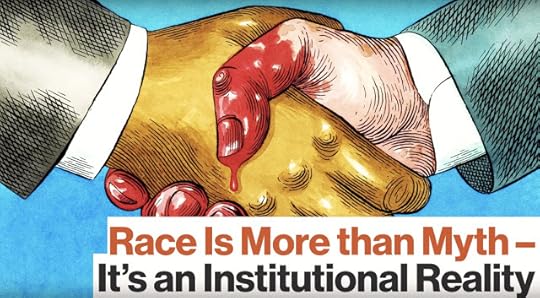 'Journalist and Professor William Jelani Cobb considers the impact of Obama’s presidency on race in America. Did he make good on the promise of change that got him elected? Cobb's latest book is The Substance of Hope: Barack Obama and the Paradox of Progress.' -- +Big Think
'Journalist and Professor William Jelani Cobb considers the impact of Obama’s presidency on race in America. Did he make good on the promise of change that got him elected? Cobb's latest book is The Substance of Hope: Barack Obama and the Paradox of Progress.' -- +Big Think
Published on November 19, 2016 18:10
Masculinity in the Moonlight: Director Barry Jenkins Talks with Ta-Nehisi Coates
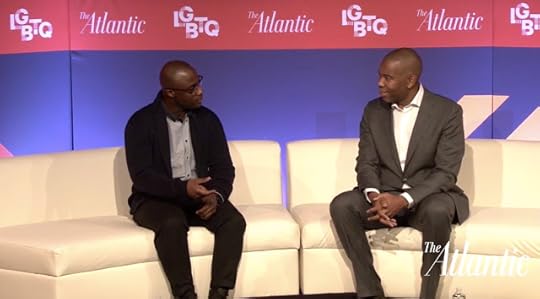 'Barry Jenkins, director of the critically acclaimed Moonlight talks with writer Ta-Nehisi Coates' -- +AtlanticLIVE
'Barry Jenkins, director of the critically acclaimed Moonlight talks with writer Ta-Nehisi Coates' -- +AtlanticLIVE
Published on November 19, 2016 18:05
#ProfessionalBlackGirl -- Episode 10: Omisade Burney-Scott
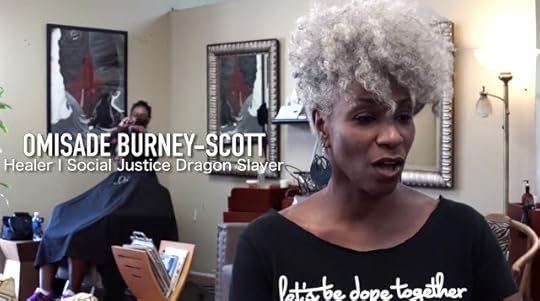 'Omisade Burney-Scott. Priestess. Healer. Social Justice Dragon Slayer. Silver Fox. And #ProfessionalBlackGirl.' -- +Yaba Blay
'Omisade Burney-Scott. Priestess. Healer. Social Justice Dragon Slayer. Silver Fox. And #ProfessionalBlackGirl.' -- +Yaba Blay
Published on November 19, 2016 17:57
November 17, 2016
Damon Young: Dear President--What You Need to Know About 'Nigga Neurosis'
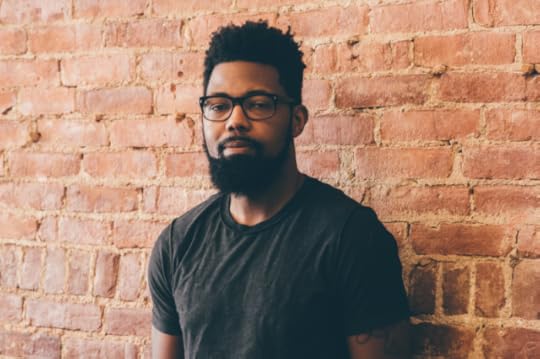 'It’s likely you’ve never heard of "Nigga Neurosis" until today. Because it’s something I made up -- the name, anyway. The condition it describes, however, is very, very, very real. You see, black people live in a perpetual state of wondering if, and how, racism is involved when we experience anything.' -- Damon Young via +WNYC
'It’s likely you’ve never heard of "Nigga Neurosis" until today. Because it’s something I made up -- the name, anyway. The condition it describes, however, is very, very, very real. You see, black people live in a perpetual state of wondering if, and how, racism is involved when we experience anything.' -- Damon Young via +WNYC
Published on November 17, 2016 11:56
#BackChannel: Dave Chappelle + A Tribe Called Quest + Saturday Night Catharsis
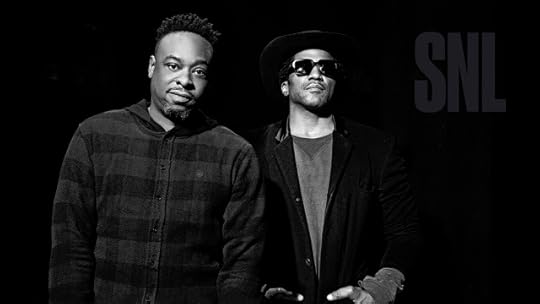 'In a moment of collective "mourning" comedian Dave Chappelle and the Hip-Hop group A Tribe Called Quest (ATCQ) offered catharsis on the November 16th episode of Saturday Night Live. On this edition of #BackChannel, WUNC's Frank Stasio talks with regular contributors Natalie Bullock Brown and Mark Anthony Neal about the significance Chappelle's performance, the latest and purported last album by ATCQ, and the Ava Duvernay produced short film for Common's 'Black America Again'.
'In a moment of collective "mourning" comedian Dave Chappelle and the Hip-Hop group A Tribe Called Quest (ATCQ) offered catharsis on the November 16th episode of Saturday Night Live. On this edition of #BackChannel, WUNC's Frank Stasio talks with regular contributors Natalie Bullock Brown and Mark Anthony Neal about the significance Chappelle's performance, the latest and purported last album by ATCQ, and the Ava Duvernay produced short film for Common's 'Black America Again'.
Published on November 17, 2016 11:42
Kimberlé Crenshaw: The Urgency of Intersectionality [TED]
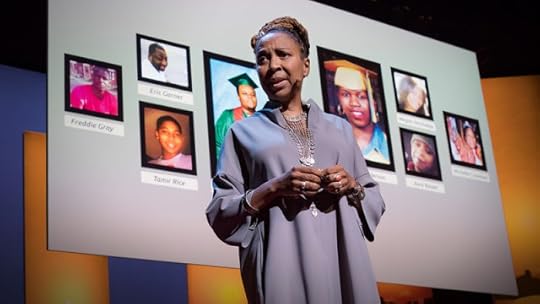
'Now more than ever, it's important to look boldly at the reality of race and gender bias — and understand how the two can combine to create even more harm. Kimberlé Crenshaw uses the term "intersectionality" to describe this phenomenon; as she says, if you're standing in the path of multiple forms of exclusion, you're likely to get hit by both. In this moving talk, she calls on us to bear witness to this reality and speak up for victims of prejudice. Crenshaw talk features a performance by vocalist Abby Dobson'-- TED
Published on November 17, 2016 03:22
November 15, 2016
Journalist Gwen Ifill: In Her Own Words
 'Pioneering journalist Gwen Ifill, host of Washington Week and PBS NewsHour, has died. At a commencement address to the American University's School of Public Affairs in 2014, Ifill spoke about herself and her career many times over the years.'
'Pioneering journalist Gwen Ifill, host of Washington Week and PBS NewsHour, has died. At a commencement address to the American University's School of Public Affairs in 2014, Ifill spoke about herself and her career many times over the years.'
Published on November 15, 2016 05:59
November 14, 2016
For the incomplete gesture, from a black girl writing with uncertain instruments by Wahneema Lubiano

For the incomplete gesture, from a black girl writing with uncertain instrumentsby Wahneema Lubiano | @Wahneema | special to NewBlackMan (in Exile)
To those who are here from the other places, from the othered places:
I spent all of election night and the next morning emailing and talking on the phone to my students, to family members, and to friends, sorting throughout the night an accumulation of what I thought, what I felt, and the inadequate bulwark of my need to produce a sufficiency of analysis, of critique, of anger, to hold off the night terrors of paralysis, a paralysis that shamed me, to hold off the impulse to an unearned despair.
I am a woman of a certain age and declining mobility; I teach at a non-public university; I am a citizen of variegated insufficiency. I feel no easy resting place for confidence, in this moment or any others, that I will be able to assist myself or anyone else. But against the consistent fear of those driven to the U.S. because of a history that the U.S. helped make as well as the fear of those here already yet marked by other vulnerabilities, I am called on to say, to do, something. My awareness of the weight of the history of this present and the serendipity of my education, of my experience in my natal community, requires me to speak to those others, those othered, right now.
The struggle is big enough, is complex enough, is both raggedly diffuse and continually sharpened by circumstances that I could throw myself into it or onto it, and land where something needs to be done. And I do, within the scope of my limitations even given the existence of white supremacy, of capitalism, of misogyny, of homophobia, of physical force allied with resentment.
But it was coming into audible and visual contact over and over with those who are more vulnerable than I am right now—something that should not be mistaken for false (or true) bravado because I am “documented,” wear no hijab, have a bathroom birthright, and can provide at least some proofs of heterosexuality—that prompted my willingness to pick up the safety pin as one response among many.
I could imagine myself picking it up, not with the awareness of power that comes (as a vague memory from my youth) with wrapping my hands around a baseball bat, but with awareness of how the pin disappears into the fuzziness of ordinary domestic existence, with an understanding that it generally serves to hold together something or things until firmer measures of adherence can be secured. This was a moment when the solid heft and weight of a bat or a club was seductive, I admit, because I grew up with brothers, was trained to think of a real fight as aestheticized by their weapons of choice.
I was captured instead by the whimsy of the pin’s limited stability and general availability, by its limited decipherability even as its metallic make-up suggested more strength than might actually exist or be deployable especially in a moment when I wanted my anger not only for momentum but for a healing of the shame of my insufficiency.
That it might speak because of its use in another place was fine; it’s only a safety pin, after all. But it spoke something not always easily definable or graphable, pointed, even if not necessarily sharp—but certainly not subtle. Its use was weird for me. I generally prefer to fail at analysis, at political strategizing, or anger management, than to fail at speaking the messy languages of slogans, of public speech and gestures, things that can’t easily work to ensure measureable commitment to a struggle, that open up more questions, even more suspicions, than work to provide the complete bona fides of political comradery.
On the other hand, I found that I needed something that could be close at hand, that could be part of an argument, an incitement, a possible, albeit limited, lingua franca of political caring from a monolingual speaker of American English at the scene of only this most recent emergence of U.S. political ill-will within the conditions of our capitalism. The injured and deadly self-regard of rearticulated and unarticulated hatreds, was immediately before me. It was a way to hold a place for the much more work and struggle necessary but that could, in the meantime, say to someone I don’t know, to whom I owe whatever I can do without the useless gesture, for example, of my handing her a syllabus as proof of my good intentions, or presenting my bona fides from other arenas of struggle, and without regard to my ability to more clearly enunciate, the fact that I want to help, if I can.
I am at peace with the incompleteness of this gesture, with not being able to document why others have pinned themselves, with not being able to see clearly the trajectory of this unsubtle speech, with not being able to finish the argument, or even know for sure the terms of its reception.
That I’ve had some fleeting moments of connection, often unspoken but gestural, helps me remember, in those close movements of passing, of hesitation and smile, that I offer what I want to have come into the world. If we want comrades, we must be comrades. The weight of that knowing is cushioned by the possibility of tiny connections of which I might never have proof.
+++
Wahneema Lubiano is Associate Professor of Literature and African & African-American Studies at Duke University. She is the editor of the acclaimed The House that Race Built.
Published on November 14, 2016 21:43
Between the Space Program and Royalty Capes by David Wall Rice
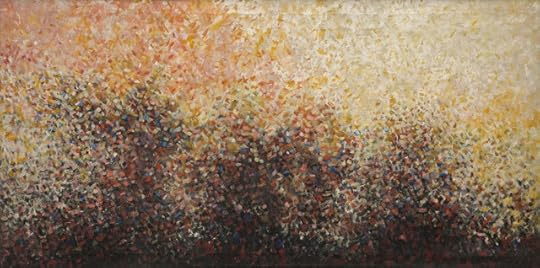 Norman Lewis -- Torch (1960)Between the Space Program and Royalty Capesby David Wall Rice | @dwallrice | special to NewBlackMan (in Exile)
Norman Lewis -- Torch (1960)Between the Space Program and Royalty Capesby David Wall Rice | @dwallrice | special to NewBlackMan (in Exile)It’s time to go left and not right; Gotta get it together forever; Gotta get it together for brothers; Gotta get it together for sisters; For mothers and fathers and dead n----s; For non-conformists, one hitter quitters; For Tyson types and Che figures; Let's get it together, come on let's make it. --The Space Program--A Tribe Called Quest (2016)
A quick response to the reality of their election of Donald Trump, for those who have the conscious, lived experience of being defined as minority in this country, is a non-ironic, "it figures." Though a proverbial shotgun-blast to the chest for many, with the callous and clumsy anti-humanist presentation of it all, the current President-Elect represents a mirror-image of what The United States has assumed itself to be since forever, and so do many aspects of the defeated Democratic nominee.
Cognitive dissonance, rationalization, denial and other effective psychological defenses have allowed us to operate adequately within a universal context of White Supremacist, anti-woman, anti-color, heteronormative othering for a long time. Some of us are still there. We have adjusted to a maladjusted baseline and now we're shook.
Devices of mainstream culture make us even more inclined to assume inclusion with and attachment to a healthy body politic because color, and cultures, and women, and all, are offered up as mainstream. Confusion around Trump's nomination and his eventual election is testament to this played assumption. But in drilling down we know that shadow selves on sound systems and celluloid do not connote visibility or equal signatories to our broad democracy.
Super-cooning and subtle surrender in politics, pop movies and in music routinely pretend with performances of rarified access, confusing it with liberation that implicitly and explicitly challenge the Cullors, Tometi and Garza initiated space of Black Lives Matter. This is the twisted, rugged-individualistic America within which we live, and that seats of American government and Imperialism reflect, now a bit more conspicuously.
To believe the best parts of us are core to our living context allows for a version of psychological unity, community and feelings of security, however compromised. FACTS — the best parts of us are not at core of our universal context here in the United States. But they can be. Thoughtful, reflexive answers to the re-boot hegemony of an elected Trump are ways to this best us. Suggesting as much does not mean that our election results are alright, or that our current socio-cultural-political climate is a necessary evil. It could have been avoided. Nonetheless, the agency and ability that motivated their election of Trump can be matched with our agency and ability in making paths toward authentic emancipation.
This activism is the responsibility of the outraged and of the committed. No doubt, it will come in the form of street protest, think pieces, more politicking, peace and violence, and through innovation that we've barely embraced. And it will hurt, badly. Sometimes it will hurt even more than it hurts now. But the outraged and the committed — the loving — will press to freedom because there really is no other way. And this struggle, birthed of necessity, not for nobility, gives us the best parts of us. It moves stale paradigms and gives a more accurate psychological unity, community and feelings of security. It binds us who are like-minded to the process and goal of freedom.
Salute life when dawn breaks; Foreign colored faux mink lapels on these Royalty capes; I repeat, salute life when dawn breaks; Foreign colored faux mink lapels around Royalty capes; Royalty.--Royalty Capes, De La Soul (2016)
+++
David Wall Rice is associate professor and Chair of the Department of Psychology at Morehouse College. At the College he also leads the Identity Orchestration Research Lab and serves as faculty for the Cinema, Television and Emerging Media Studies (CTEMS) program. Wall is the author of Balance: Advancing Identity Theory by Engaging the Black Male Adolescent and is currently at work on his second book, Race, Gender, Class and Context: Being and Becoming More.
Published on November 14, 2016 21:17
Mark Anthony Neal's Blog
- Mark Anthony Neal's profile
- 30 followers
Mark Anthony Neal isn't a Goodreads Author
(yet),
but they
do have a blog,
so here are some recent posts imported from
their feed.



